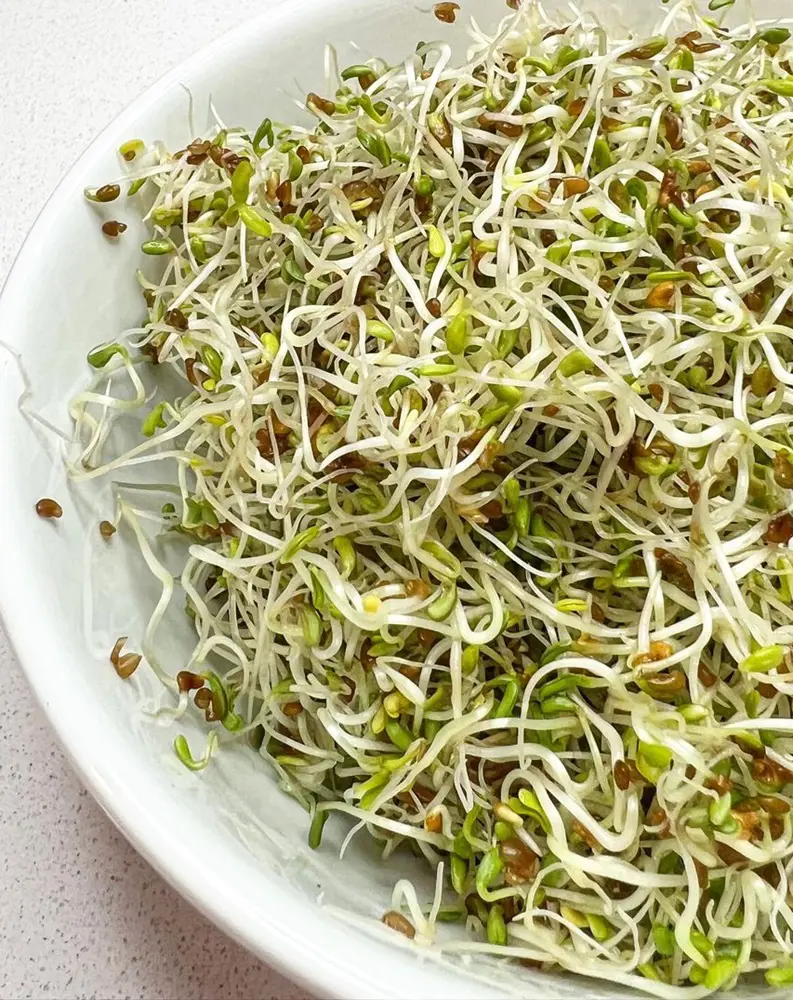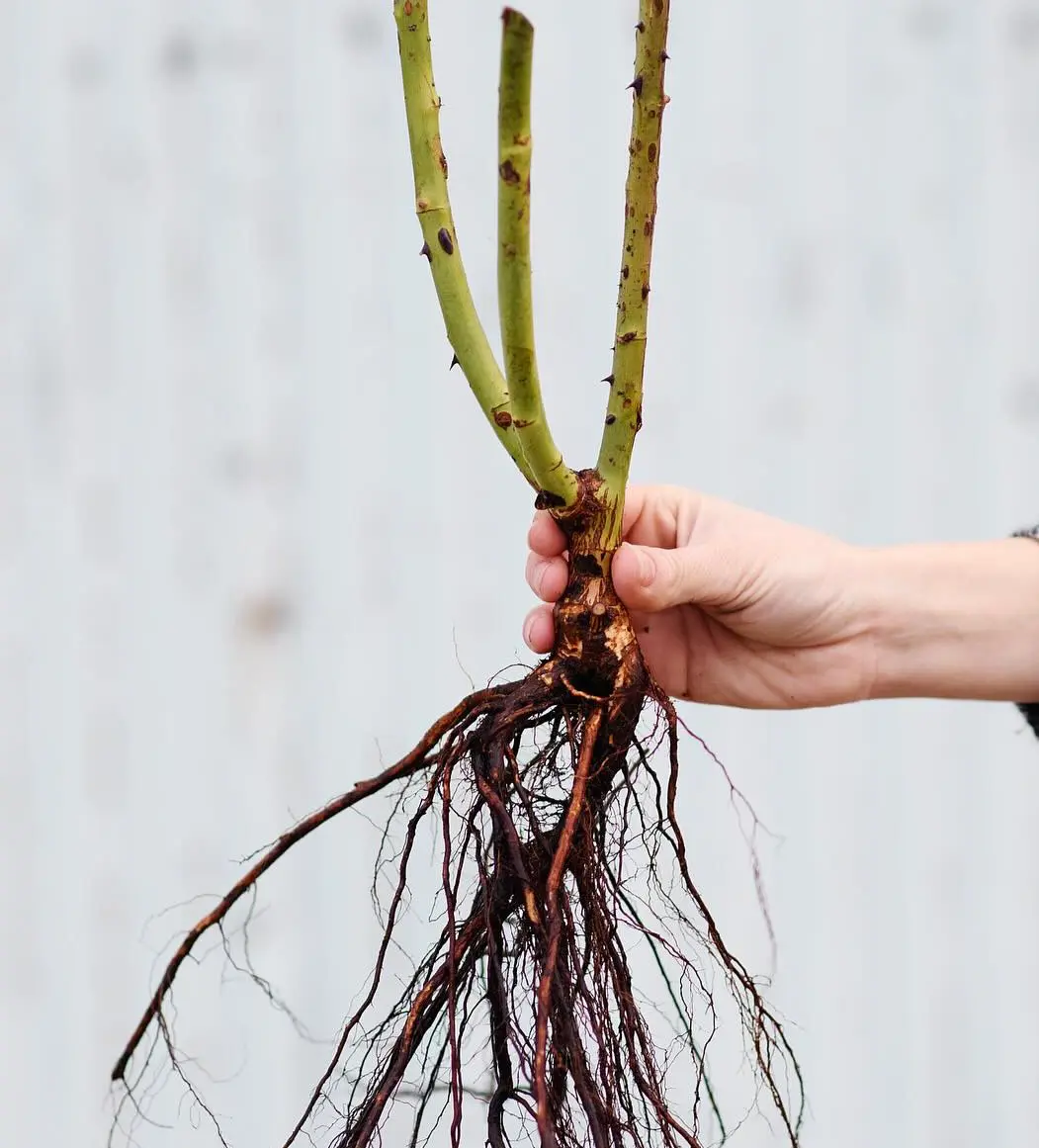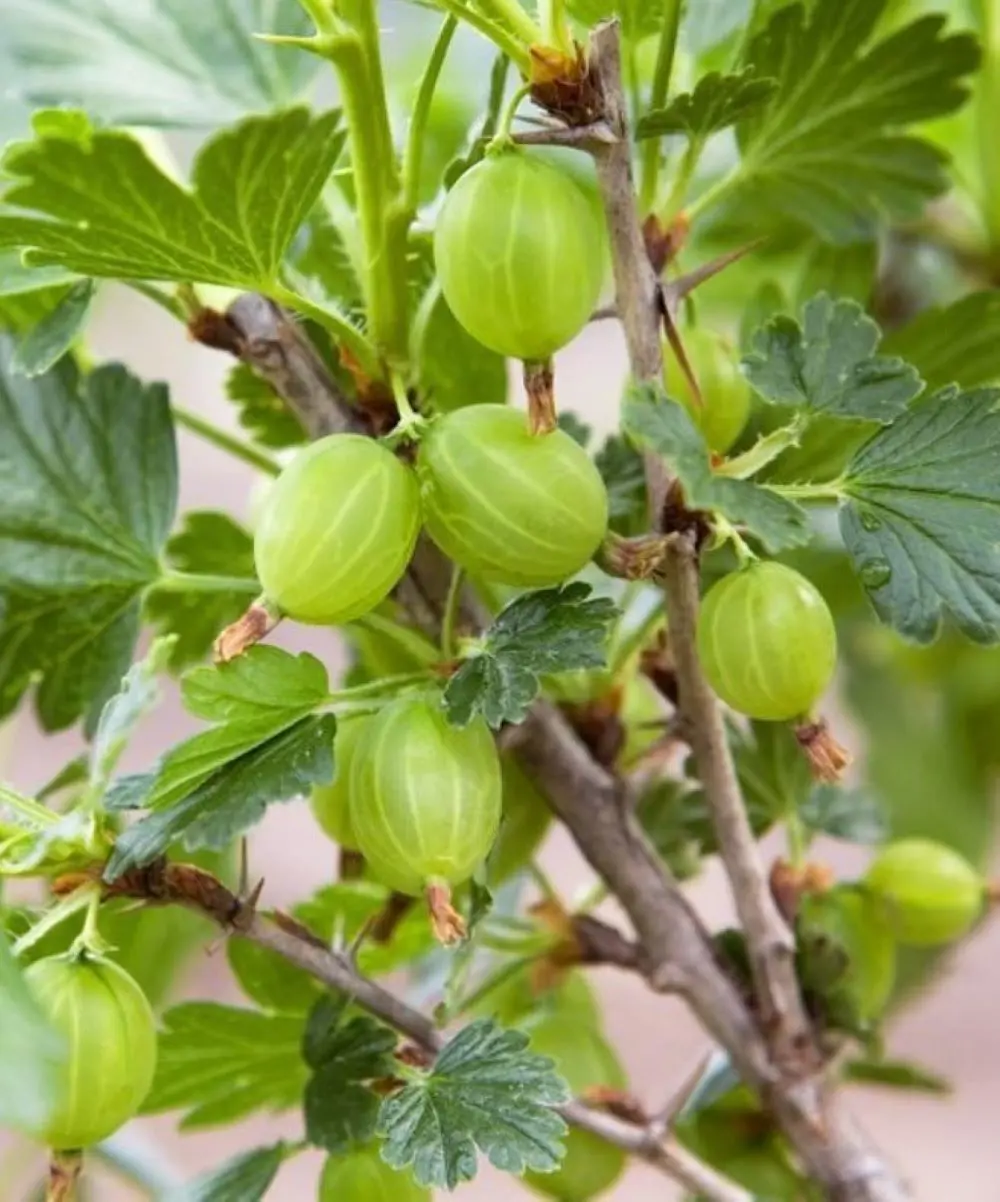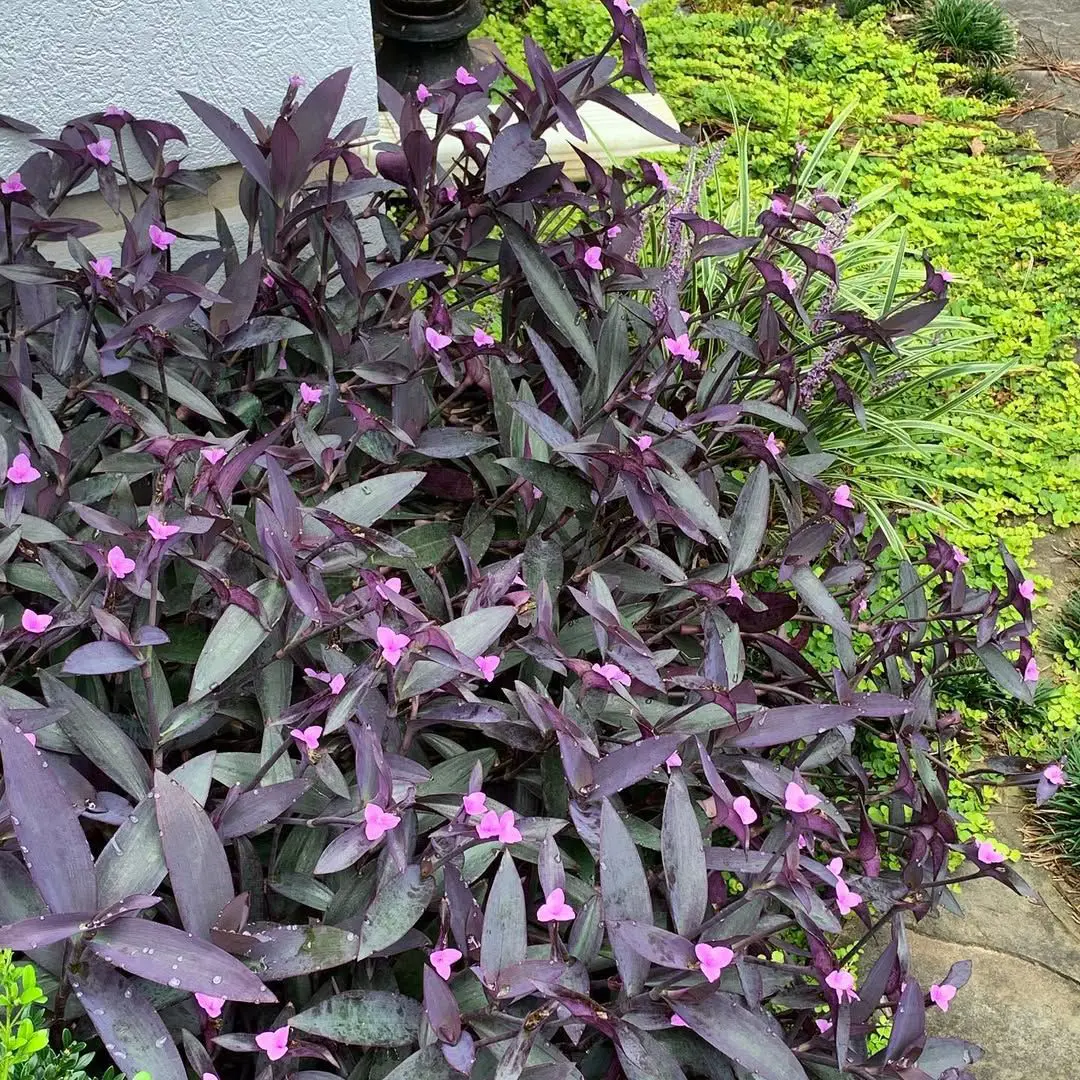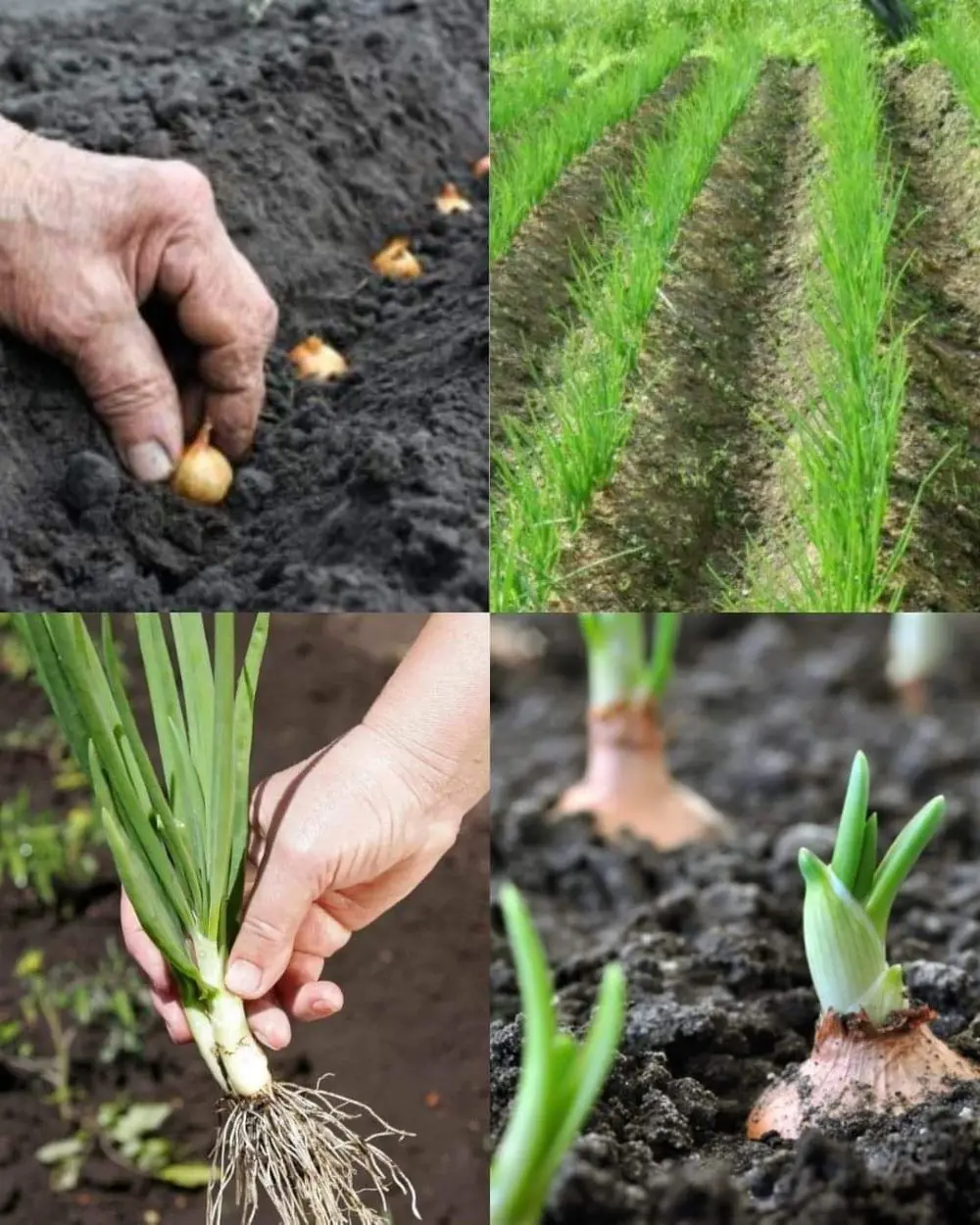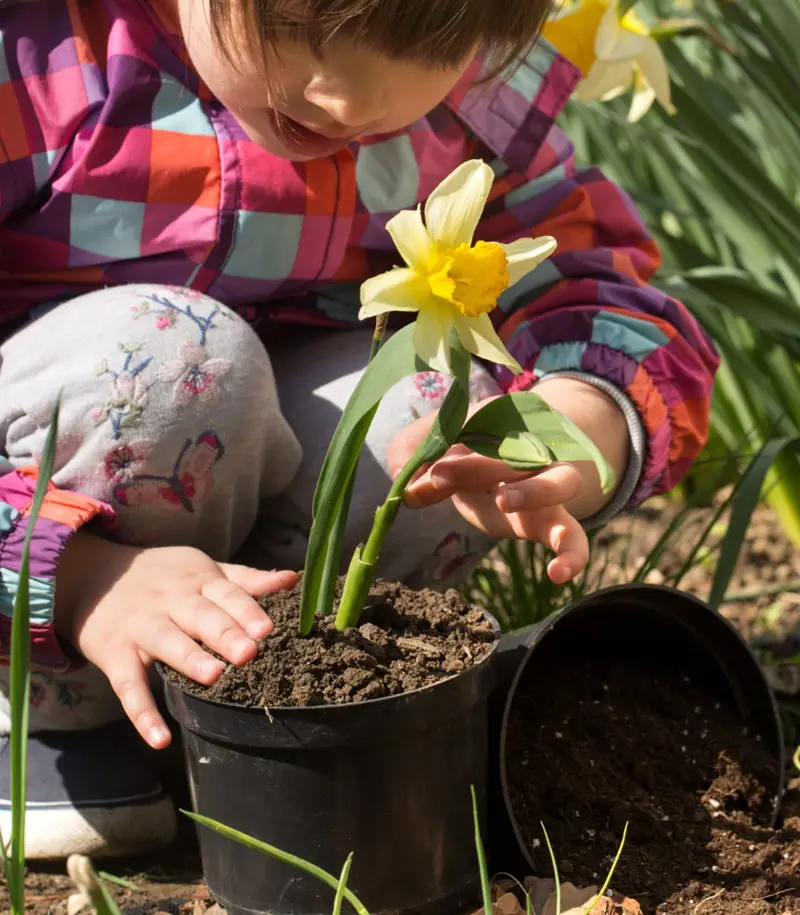Growing alfalfa sprouts at home is relatively easy and requires minimal equipment and space. They are a nutritious and versatile addition to various dishes, from salads to sandwiches.
Rich in vitamins A, C, and K and essential minerals like calcium, magnesium, and iron, they offer a healthful boost to your diet. This comprehensive guide will walk you through the process of growing and caring for alfalfa sprouts, ensuring you can enjoy fresh, home-grown sprouts year-round.
Why Grow Alfalfa Sprouts?
Alfalfa sprouts are not only nutritious but also cost-effective and sustainable to grow at home. They can be grown indoors, making them an excellent option for urban dwellers or those with limited garden space.
Additionally, growing your sprouts ensures they are free from pesticides and other contaminants, offering peace of mind about the quality and safety of your food.
Materials Needed
To begin growing alfalfa sprouts, you’ll need the following materials:
- Alfalfa seeds (organic and untreated)
- Mason jar or sprouting tray
- Cheesecloth or a mesh sprouting lid
- Rubber band (if using cheesecloth)
- Water
- A dark, cool place for initial sprouting
Step-by-Step Guide to Growing Alfalfa Sprouts
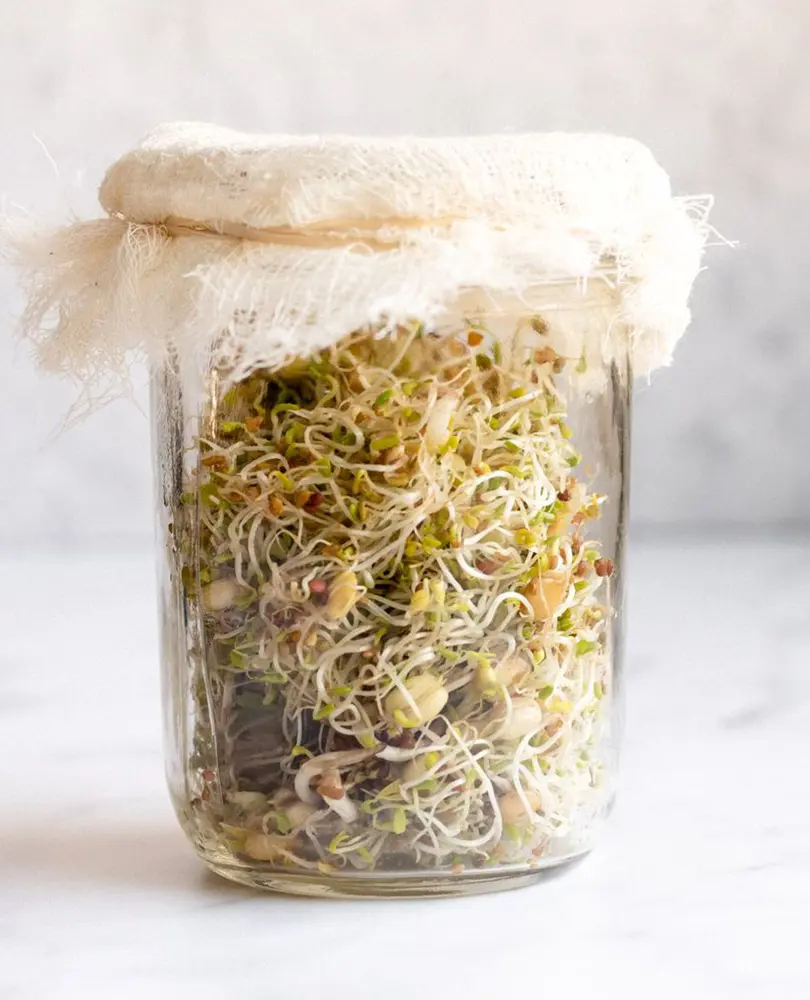
1. Selecting and Preparing Seeds
Start your sprouting journey by choosing high-quality, organic alfalfa seeds from a reputable supplier. Organic seeds are not only free from harmful chemicals and genetically modified organisms (GMOs) but also offer a healthier and more robust sprouting experience.
Take your time to inspect the seeds, ensuring they are free from debris and are uniform in size. This initial step is crucial as the quality of the seeds directly impacts the success of your sprouting.
2. Soaking the Seeds
Soaking is a critical step in the germination process, as it rehydrates the seeds and kickstarts the growth cycle. Begin by measuring 1-2 tablespoons of alfalfa seeds and placing them in a clean mason jar. Cover the seeds with approximately two inches of cool, filtered water.
Secure the top of the jar with a piece of cheesecloth, held in place by a rubber band, or use a mesh sprouting lid. This setup allows for proper air circulation while keeping debris out. Let the seeds soak for 6-8 hours or overnight.
Soaking softens the seed coat, making it easier for the sprouts to emerge.
3. Draining and Rinsing
Once the soaking period is complete, drain the water from the jar using the cheesecloth or mesh lid. Rinse the seeds thoroughly with fresh, cool water. Proper rinsing is essential as it washes away any potential contaminants and ensures a clean growing environment.
After rinsing, drain the water completely to prevent mold growth. Make sure the seeds are spread out evenly inside the jar to allow for even airflow.
4. Sprouting the Seeds
After draining, place the jar at an angle to allow any remaining water to drain out completely. You can achieve this by propping the jar up on a dish rack or using a specialized sprouting stand. Store the jar in a dark, cool place, such as a cupboard or a pantry.
Alfalfa seeds initially prefer darkness to encourage germination. Rinse and drain the seeds 2-3 times a day, ensuring that they are kept moist but not waterlogged. Each rinse provides fresh oxygen and removes any waste products from the sprouting seeds.
5. Growing Conditions
As the seeds begin to sprout and small leaves appear, typically after 2-3 days, move the jar to a location with indirect sunlight. Indirect sunlight allows the sprouts to develop chlorophyll, turning them green and boosting their nutritional content.
Be cautious not to place them in direct sunlight, as too much heat can cause the sprouts to wilt or spoil. Continue to rinse and drain the sprouts 2-3 times daily, ensuring they receive adequate moisture and ventilation.
6. Harvesting
Alfalfa sprouts are typically ready to harvest in 5-7 days, depending on the growing conditions and personal preference. You’ll know they are ready when they reach about 1-2 inches in length and have a vibrant green color.
To harvest, give the sprouts a final thorough rinse to remove any remaining seed hulls. Drain them well and allow them to dry slightly on a clean paper towel. This final rinse and drying step ensures that the sprouts are fresh, crisp, and ready for consumption.
Store the harvested sprouts in a sealed container in the refrigerator to keep them fresh for up to a week.
Caring for Alfalfa Sprouts
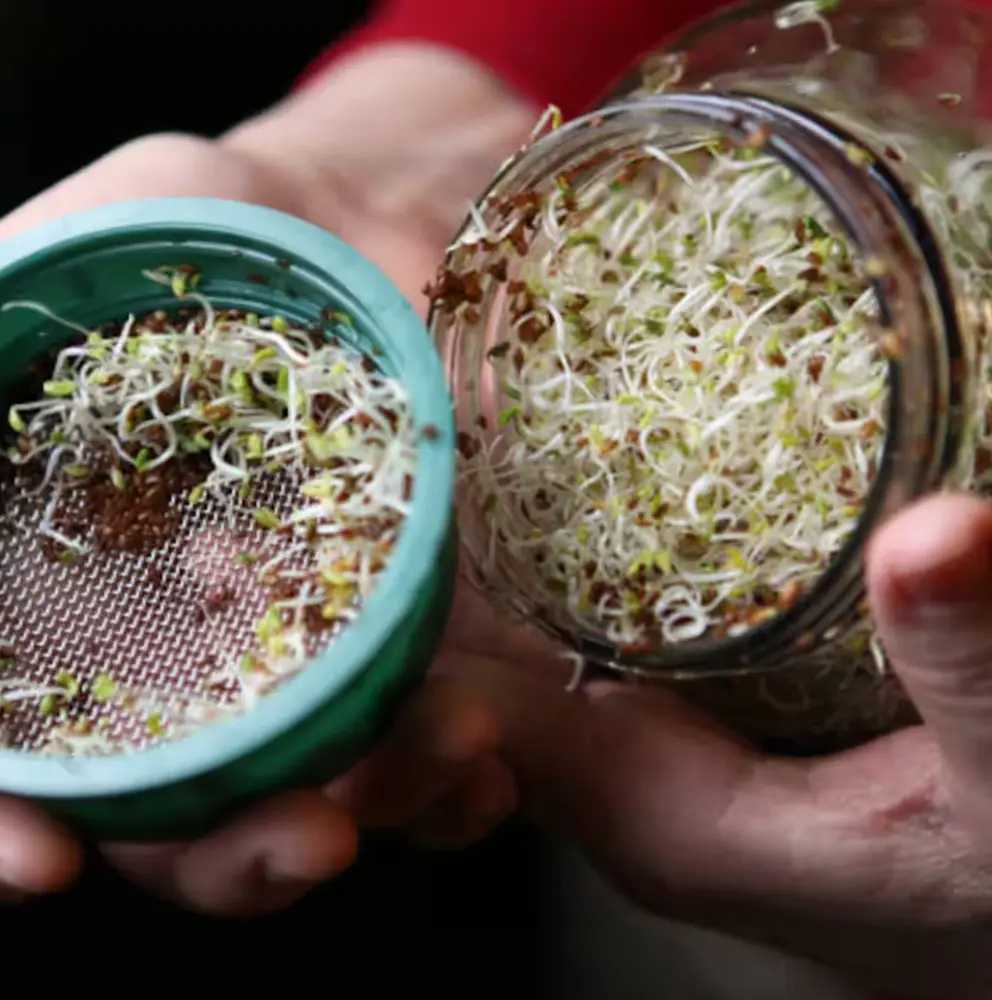
1. Regular Rinsing
Rinsing is one of the most crucial steps in caring for alfalfa sprouts. Regular rinsing, typically two to three times a day, ensures that your sprouts remain hydrated and free from harmful bacteria. Begin by using cool, fresh water for each rinse.
Swirl the water around in the jar or tray gently to ensure all sprouts are evenly rinsed. After rinsing, thoroughly drain the water to prevent the sprouts from sitting in excess moisture, which can lead to mold growth.
Consistent rinsing not only maintains the sprouts’ cleanliness but also supports their healthy and robust growth by providing the necessary hydration.
2. Proper Drainage
Proper drainage is essential to the health of your alfalfa sprouts. After each rinse, it's vital to ensure that all excess water is fully drained. Use a sprouting jar with a mesh lid or a dedicated sprouting tray designed to facilitate good drainage.
Position the jar at an angle, allowing gravity to aid in removing any residual water. Poor drainage can create a breeding ground for mold and bacteria, which can spoil your sprouts.
Ensuring proper drainage helps maintain an optimal moisture level, promoting healthy sprout development and preventing potential spoilage.
3. Clean Equipment
Keeping your sprouting equipment clean is fundamental to growing healthy alfalfa sprouts. Before starting a new batch of sprouts, thoroughly wash all jars, lids, and trays with hot, soapy water. Rinse well to remove any soap residue.
You can also sterilize your equipment by soaking it in a solution of one part vinegar to three parts water for about 10 minutes, then rinsing thoroughly.
Regular cleaning of your equipment prevents the buildup of bacteria and mold, ensuring a sanitary environment for your sprouts to grow.
4. Temperature Control
Maintaining the right temperature is critical for the successful sprouting of alfalfa seeds. Alfalfa sprouts thrive in a temperature range of 60-70°F (15-21°C). Keeping the sprouts at this temperature range promotes healthy growth and prevents them from spoiling.
Avoid placing the sprouts in direct sunlight or near heat sources, which can cause them to wilt or dry out. Similarly, extremely cold environments can slow down the germination process.
A consistent, moderate temperature ensures that the sprouts develop at an optimal rate and maintain their freshness and nutritional value.
5. Monitoring for Spoilage
Regularly monitoring your alfalfa sprouts for signs of spoilage is essential to ensure they remain safe and healthy to eat. Check your sprouts daily for any unusual odors, sliminess, or discoloration. Fresh alfalfa sprouts should have a clean, earthy smell and a crisp texture.
Any off-smells, slimy texture, or signs of mold indicate spoilage, and those sprouts should be discarded immediately. Keeping a close eye on your sprouts helps you catch and address any issues early, ensuring that you only consume fresh, healthy sprouts.
Storing Alfalfa Sprouts
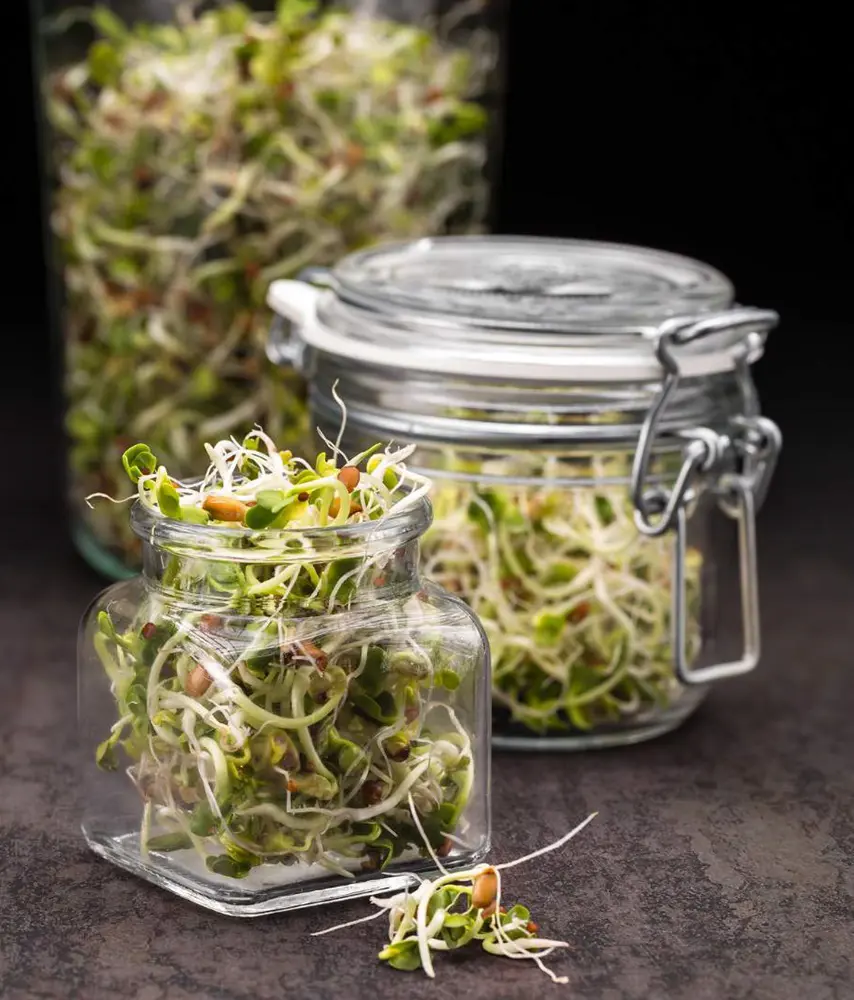
Proper storage of alfalfa sprouts is crucial to maintain their freshness and nutritional value. Once harvested, alfalfa sprouts should be stored in the refrigerator to keep them crisp and prevent spoilage. Follow these steps to ensure your sprouts remain fresh for as long as possible:
-
Preparation: After harvesting, rinse the sprouts thoroughly under cold water to remove any remaining seed hulls and clean them of potential contaminants. Gently shake off excess water or use a salad spinner to dry them.
-
Container Selection: Choose a suitable storage container. An airtight container is ideal as it helps maintain the sprouts' freshness by preventing exposure to air.
-
Moisture Control: Line the bottom of the container with a paper towel. This helps absorb any excess moisture, which can cause the sprouts to become slimy and spoil faster. Place the cleaned and dried sprouts on top of the paper towel.
-
Refrigeration: Seal the container tightly and place it in the refrigerator. Store the container in the crisper drawer or on a shelf where the temperature is consistent and cool.
When stored properly, alfalfa sprouts can typically last up to a week in the refrigerator. Regularly check the sprouts for signs of spoilage, such as a sour smell or slimy texture, and discard any that have gone bad to ensure the rest remain fresh and safe to eat.
Nutritional Benefits of Alfalfa Sprouts
Alfalfa sprouts are a powerhouse of nutrition, offering numerous health benefits:
- Rich in Vitamins and Minerals: Alfalfa sprouts are an excellent source of vitamins A, C, and K. They also provide essential minerals such as calcium, magnesium, iron, and zinc.
- High in Protein: These sprouts contain a notable amount of plant-based protein, making them a great addition to vegetarian and vegan diets.
- Low in Calories: Alfalfa sprouts are low in calories, making them an ideal food for weight management.
- Antioxidant Properties: The high vitamin C content in alfalfa sprouts acts as an antioxidant, protecting cells from damage by free radicals.
- Digestive Health: Alfalfa sprouts are rich in dietary fiber, which aids in digestion and promotes a healthy gut.
Troubleshooting Common Issues
1. Mold and Bacterial Growth
- Problem: Mold or bacterial growth on sprouts.
- Solution: Ensure proper rinsing and drainage. Keep equipment clean and avoid overcrowding the sprouts. Maintain a cool sprouting environment.
2. Poor Germination
- Problem: Seeds fail to germinate.
- Solution: Use fresh, high-quality seeds. Ensure the seeds are soaked for the appropriate amount of time and rinse them thoroughly.
3. Slimy Sprouts
- Problem: Sprouts become slimy.
- Solution: Increase the frequency of rinsing and ensure proper drainage. Keep sprouts in a well-ventilated area.
4. Bitter Taste
- Problem: Sprouts have a bitter taste.
- Solution: Harvest sprouts at the right time, typically 5-7 days. Overgrown sprouts can develop a bitter taste.
